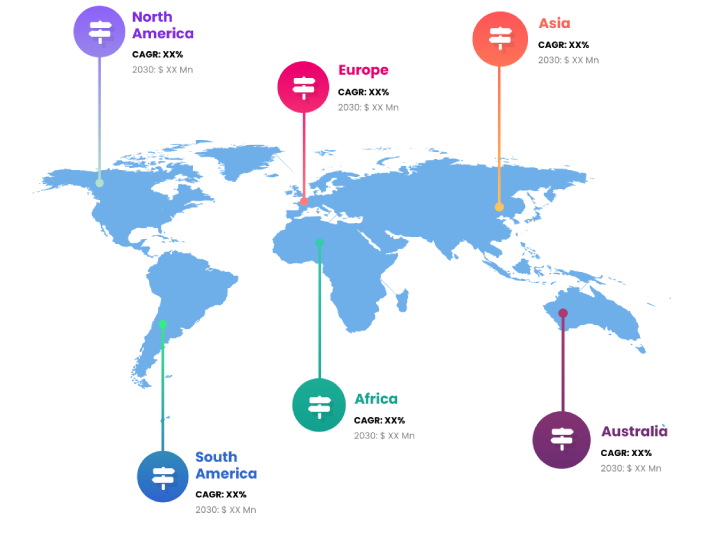
The iron and steel industry produces ferrous slag as a waste product from the blast furnaces used to mix dolomite, limestone, and silica sand with steel. The purpose of adding these materials is to purge the ferrous feeds, iron ore, or trash of any contaminants. Concrete, cement, asphalt, and many other building products use ferrous slag into their composition. Because of its capacity to supply nutrients like silica, calcium, and magnesium, ferrous slag is also used in agricultural products like fertilizers.
Throughout the forecast period, the worldwide ferrous slag market is anticipated to maintain a consistent revenue CAGR, building on its robust performance in 2020. Steel and iron are in high demand in the construction industry, which is boosting the market. These materials are used in many applications such as granular foundation, embankments, engineered fill, highway shoulders, and hot mix asphalt pavement.
Ferrous slag is a waste product of iron and steel factories. Limestone, dolomite, lime, and silica sand are added to blast furnaces and steel furnaces to make it. The purpose of adding these minerals is to minimize the heat requirements of the iron and steel producing processes and to eliminate impurities from ferrous feeds, trash, and iron ore. After being separated from the liquid metal, slag is generated when a calcium silicate melt floats on top of the molten crude iron or steel. As a result of the low value of processed slag, steel makers often contract with other companies to remove, cool, process, and sell it. The commercial applications of the slag rely on this cooling procedure.
Slag is an umbrella term for all by-products that are not metals that are created when a metal is extracted from its ore. The metal that is produced and the method of solidification used determine the chemical composition and the final form of the slag. A slag's ferrous (iron/steel) or non-ferrous (copper, lead/zinc) classification is based on the industry from where it originates. Various slags can be generated throughout the iron and steel production process, including blast furnace slag, basic oxygen furnace slag, electric arc furnace slag, secondary metallurgical slag, and others. The aforementioned material, when added to furnaces, reduces the heat required for the manufacturing of steel and iron. The majority of ferrous slag is composed of calcium silicate, which is deposited on the surface of molten iron and crude steel before being removed from the metal.
The poor heat conductivity and high hardness of ferrous slag make it an ideal raw material for many building products. You can utilize the prepared steel slag to make asphalt or concrete, and you can use the ferrous slag to build roads right away. Construction materials are in high demand due to the increasing demand for residential and commercial constructions as well as the increased investments in infrastructure. For example, in 2021, construction investment in Europe totaled USD 1,734.86 billion, as reported by the European Construction Industry Federation (FIEC). Therefore, the market for ferrous slag is seeing rapid growth due to the rising demand for it in the construction materials industry.
Since ferrous slag can supply micronutrients like calcium, magnesium, and aluminum, among others, it finds extensive use in agricultural products, such as fertilizers. Additionally, ferrous slag aids in heavy metal stability and helps remove excess CO2. More and more people are getting involved in farming as a result of innovations like precision agriculture and organic farming, which is driving up demand for products that are rich in micronutrients. Consequently, the ferrous slag market is experiencing expansion due to the increasing use of ferrous slag in agricultural goods, which improve soil fertility and productivity.
In the wrong hands, the heavy elements found in ferrous slag—manganese, iron, copper, and others—could have devastating effects on ecosystems. Overuse of ferrous slag leads to contamination of both soil and water. In addition to its widespread usage in building materials, ferrous slag is naturally alkaline. If ferrous slag were to be released into the environment, it could alter the soil's pH value. Consequently, the usage of ferrous slag may cause environmental concerns, which could slow down the industry.
Report Coverage
Global Ferrous Slag research report categorizes the market for global based on various segments and regions, forecasts revenue growth, and analyzes trends in each submarket. Global Ferrous Slag report analyses the key growth drivers, opportunities, and challenges influencing the global market. Recent market developments and Ferrous Slag competitive strategies such as expansion, product launch and development, partnership, merger, and acquisition have been included to draw the competitive landscape in the market. The report strategically identifies and profiles the key Ferrous Slag market players and analyses their core competencies in each global market sub-segments.
| REPORT ATTRIBUTES | DETAILS |
|---|---|
| Study Period | 2017-2031 |
| Base Year | 2024 |
| Forecast Period | 2024-2031 |
| Historical Period | 2017-2021 |
| Unit | Value (USD Billion) |
| Key Companies Profiled | Nippon Steel Corporation, ArcelorMittal S.A., Tata Steel Limited, Essar Steel, JFE Mineral Co., Ltd., JSW Steel Limited, POSCO, Novolipetsk Steel, Hesteel Group Company Limited, China Baowu Steel Group Corp., Ltd., Wuhan Iron and Steel Corporation, Hyundai Steel Co., Ltd, Others. |
| Segments Covered | • By Product |
| Customization Scope | Free report customization (equivalent to up to 3 analyst working days) with purchase. Addition or alteration to country, regional & segment scope |
Key Points Covered in the Report
- Market Revenue of Ferrous Slag Market from 2021 to 2031.
- Market Forecast for Ferrous Slag Market from 2021 to 2031.
- Regional Market Share and Revenue from 2021 to 2031.
- Country Market share within region from 2021 to 2031.
- Key Type and Application Revenue and forecast.
- Company Market Share Analysis, Ferrous Slag competitive scenario, ranking, and detailed company
profiles. - Market driver, restraints, and detailed COVID-19 impact on Ferrous Slag
Market
Competitive Environment:
The research provides an accurate study of the major organisations and companies operating in the global Ferrous Slag market, along with a comparative evaluation based on their product portfolios, corporate summaries, geographic reach, business plans, Ferrous Slag market shares in specific segments, and SWOT analyses. A detailed analysis of the firms' recent news and developments, such as product development, inventions, joint ventures, partnerships, mergers and acquisitions, strategic alliances, and other activities, is also included in the study. This makes it possible to assess the level of market competition as a whole.
List of Major Market Participants
Nippon Steel Corporation, ArcelorMittal S.A., Tata Steel Limited, Essar Steel, JFE Mineral Co., Ltd., JSW Steel Limited, POSCO, Novolipetsk Steel, Hesteel Group Company Limited, China Baowu Steel Group Corp., Ltd., Wuhan Iron and Steel Corporation, Hyundai Steel Co., Ltd, Others.
Primary Target Market
- Market Players of Ferrous Slag
- Investors
- End-users
- Government Authorities
- Consulting And Research Firm
- Venture capitalists
- Third-party knowledge providers
- Value-Added Resellers (VARs)
Market Segment:
This study forecasts global, regional, and country revenue from 2019 to 2031. INFINITIVE DATA EXPERT has segmented the global Ferrous Slag market based on the below-mentioned segments:
Global Ferrous Slag Market, By Product Type
Blast Furnace Slag (Granulated, Air Cooled)
steel making Slag (Converter, Electric Arc Furnace)
Global Ferrous Slag market, By Application
Cement Production
Building and Construction
Railways
Fertilizers
Rock Wool
Others
Global Ferrous Slag market, Regional Analysis
- Europe: Germany, Uk, France, Italy, Spain, Russia, Rest of Europe
- The Asia Pacific: China,Japan,India,South Korea,Australia,Rest of Asia Pacific
- South America: Brazil, Argentina, Rest of South America
- Middle East & Africa: UAE, Saudi Arabia, Qatar, South Africa, Rest of Middle East & Africa
You will get in-depth and extensive ferrous slag market market research and competitor analysis for your business to help you develop more profound insights into the ferrous slag market Market.
Through INFINITIVE Data Expert is a professional Market Research services, I will identify the ferrous slag market market size, demand & opportunities, growth rate, and target audience with a comprehensive analysis of your competitors.



